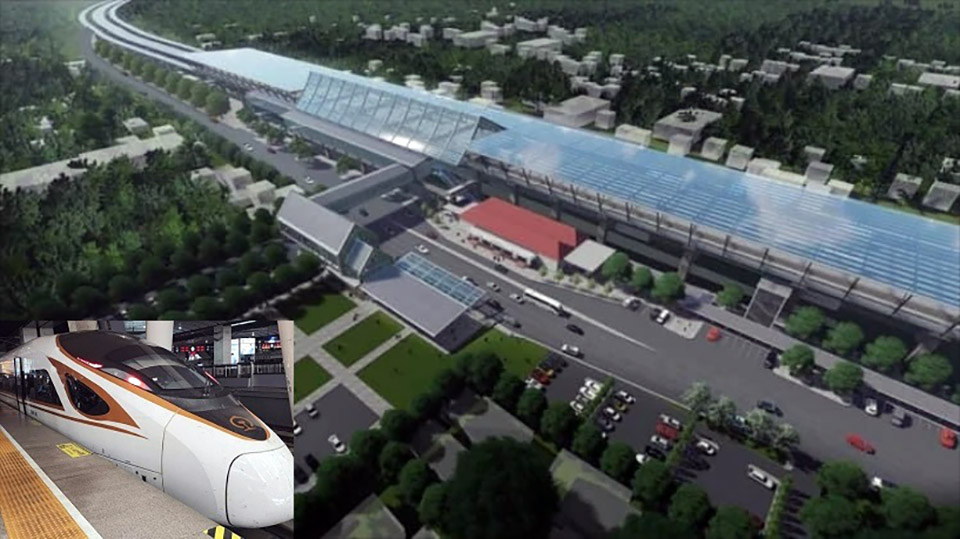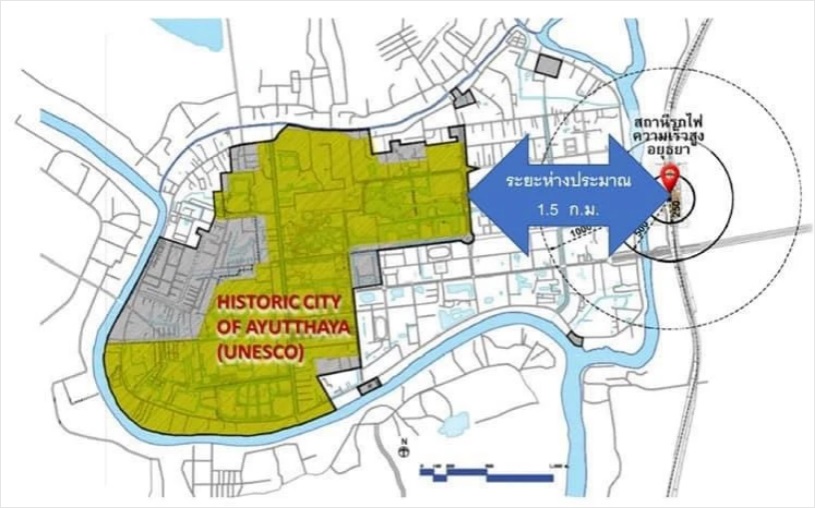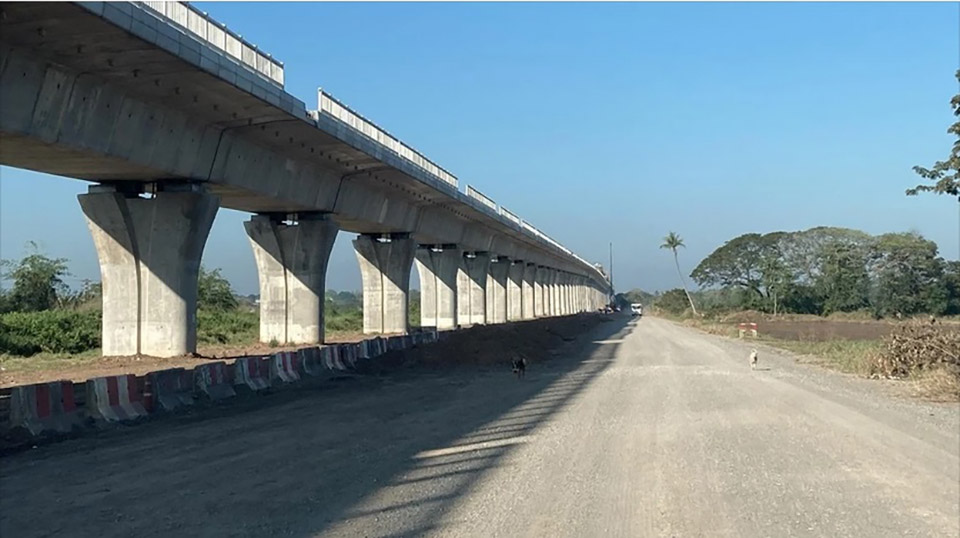
BANGKOK, Thailand – Deputy Transport Minister, Surapong Piyachote, has announced progress in addressing the delays in the Thailand-China high-speed rail project. He is set to discuss the issue with Prime Minister Paetongtarn Shinawatra, with plans to sign the construction contract for the Ayutthaya section by October 2024. The project, which spans 250.77 km from Bangkok to Nakhon Ratchasima and involves an investment of 179.4 billion baht, has seen some delays, particularly in two remaining contracts.
One of the key challenges is the impact on the Ayutthaya UNESCO World Heritage site. The State Railway of Thailand (SRT) has completed the Heritage Impact Assessment (HIA) report and submitted it to UNESCO, addressing concerns by adjusting the construction plans, including reducing the height of structures from 19 meters to 17 meters. The route itself remains 1.5 km away from the heritage site, separated by the Pa Sak River, and any decision by UNESCO will not affect the project’s continuation.
Two remaining contracts, covering the Ban Pho-Phra Kaew section (13.3 km) and the Bang Sue-Don Mueang section (15.2 km), are expected to move forward. Adjustments have been made to align with other projects, such as the high-speed rail connecting Don Mueang, Suvarnabhumi, and U-Tapao airports.

Surapong also outlined a timeline, targeting the completion of all 14 civil works contracts by early 2028, with hopes to begin system installation and operational testing in mid-2028.
Additionally, the second phase of the project, extending from Nakhon Ratchasima to Nong Khai (357.12 km), is set to go before the Cabinet, with bids expected to open in early 2025. Construction is anticipated to begin in November 2025, with completion by 2031.
To manage the operations, the SRT has allocated 10 million baht for a study on a Public-Private Partnership (PPP) model for the entire line from Bangkok to Nong Khai. This study, expected to conclude in March 2025, will focus on modernizing technology and addressing the SRT’s limitations in staffing and expertise.
The project remains aligned with China’s railway standards, as the route will connect with Laos and China as part of a broader regional network.










